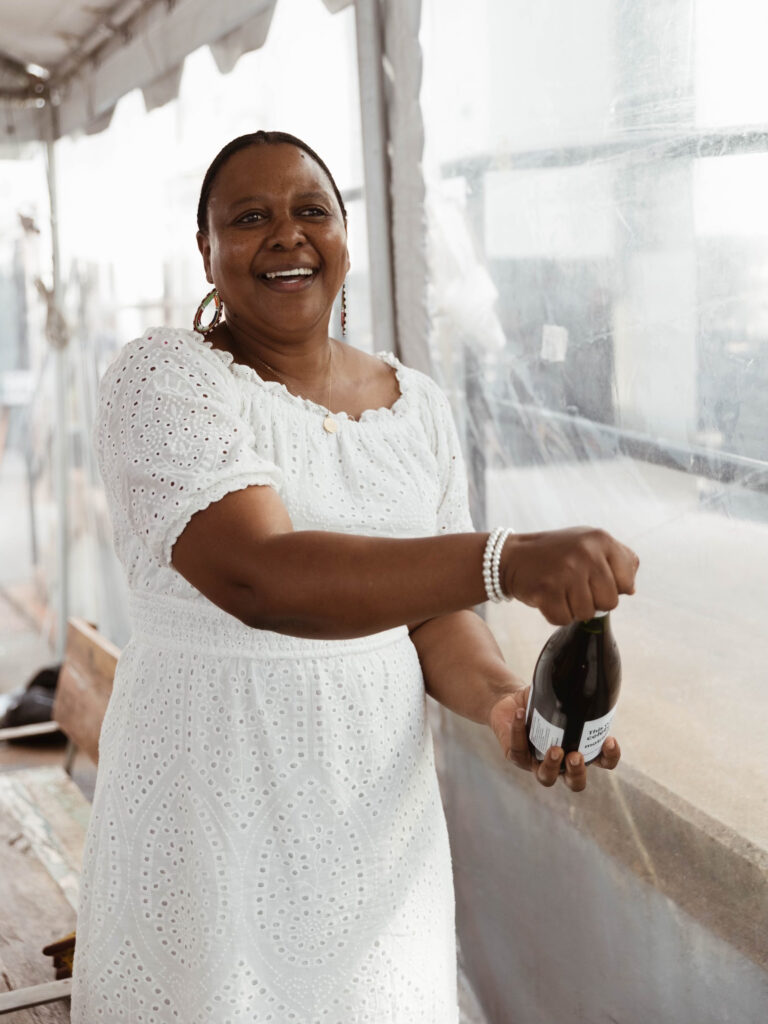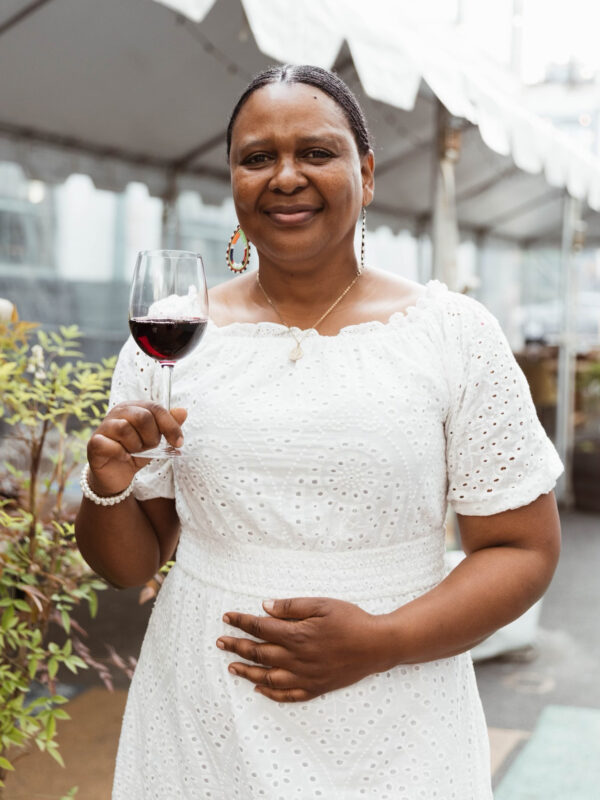If the saying “In vino veritas” (“In wine, there is truth”) is accurate, then this National Wine Day is the perfect opportunity to bring a little more cultural truth into the mix. That truth is the viability and vitality of the wine industry rests on prioritizing the inclusion of Black women in every aspect, which includes acknowledging and celebrating what they uniquely bring to the table.
The last few years have witnessed Black women staking their claim, kicking down doors and shattering glass ceilings to unapologetically carve out a place of their own in wine and illuminate paths for future industry professionals to follow in. This list includes Victoria Coleman, who made history as the first Black woman to both graduate from the UC Davis Enology & Viticulture program and to be named a head winemaker in Napa Valley; Professor Stephanie Y. Evans, scholarly researcher, lecturer, and writer whose soon-to-be-published book “Mother Vines” is based on a stunning compilation of over 250 memoirs from Black women in the wine world; and Chevonne Ball, a French language-fluent renegade wine educator and professional who makes her own wine in partnership with Eyrie Vineyards and leads her own “luxury, curated wine + food tours in the Willamette Valley + France” all under her company, Dirty Radish.
Progress extends to sister trailblazers across the Diaspora, with women like Ntsiki Biyela, the owner of Aslina Wines and the first Black female winemaker in South Africa, and Carmen Stevens, the owner of the first 100% Black-owned winery in South Africa and the first Black South African to study the art of winemaking in South Africa (after initially being denied enrollment several times because of her skin color).
There’s another rising star in the South African landscape representing a new generation of “winentrepreneurs”: Nondumiso Pikashe, the woman behind Ses’Fikile Wines, an indigenous South African wine brand.
Born in Cape Town during Apartheid, Pikashe, a former school teacher, grew up adjacent to the Winelands, but the racial and economic climate at the time definitely wasn’t conducive to a Black woman entering a field dominated by white men.
Nonetheless, she was determined to satisfy her growing curiosity for pursuing a career path in wine, and, in 2006, she created a collective after partnering with the owner of a wine farm who allowed her to use his space. Her wine dreams were deferred two years later when the winery was sold, and her business partners chose to pursue other goals.
Undeterred, a chance meeting with a winery owner born into a family of winemakers provided a second entrepreneurial opportunity for Pikashe when he generously offered to let her use his facility to produce her wines, and thus Ses’Fikile was born.
Ses’Fikile, fittingly meaning “we have arrived,” has blossomed in partnership with social enterprise company Go There Wines, which bills itself as “a lifestyle brand that produces wines of distinct taste…and rare find blends.” Her wines are dynamic and include offerings such as a Shiraz-Cinsault red blend and a Chenin Blanc-Roussanne white blend. They have been winning awards since 2019.
Sweet July spoke to Pikashe to get her insights on the business of wine and its promising future.
What perspective did you want to bring to the wine?
Nondumiso Pikashe: That of inclusivity and diversity, which will ultimately give birth to long lasting social cohesion. The exploration of freedom.
Do you believe having more vintners of color will influence wine consumers? Why and how?
NP: Yes, definitely. The wine industry has excluded Black people in the whole value chain until most recently. Unfortunately, we are still largely spectators. It’s one thing to honor culture. But we need more active involvement—for example, pairing cultural foods with wines like mine on popular platforms.
Their participation would evoke interest, raising awareness for the entire process of winemaking. The world is changing towards real unity and social justice, and wine is a conduit for such radical change. The global platform is abuzz with consciousness, of which race and gender are vital areas of focus.

What do you see as the greatest challenges for breaking in the wine industry? On the flip side, what about opportunities?
NP: It is ownership of [all] means of production, land being the leading one. The second one is market access: the stigma of dissociation to the wine industry is another subtle challenge.
The opportunities center around creativity and innovation. Technology comes in handy in this regard. The evolution of societies to consciousness breeds opportunity for partnerships and collaborations. Progressive policies can help in creating opportunities, as well. I applaud programs [that focus on] broad-based Black economic empowerment, which promises to transform South Africa’s economy by supporting Black entrepreneurs like myself and growing our economic participation.
What’s one piece of advice you wish you received at the start of your wine entrepreneurship journey? Is there anything you would have done differently?
NP: I wish I had known that I could reach out to anyone. I was born in a country and in an era of enormous racial division [and] come from a background of submission and repression—of “knowing your place” both as a Black person and a woman. [There were people who] I could have reached out to…who occupy positions of power in the industry, people whose hearts are in the right place. I could have crossed borders through technology to find collaborators, funders, etc.
Sometimes I would [reach out], but red tape would prevent the message from reaching its destination. Self-doubt would get the better of me, and, sometimes, just being overwhelmed as a single mother, I would just throw my hands in the air. Not reaching out delayed the realization of my dream, causing frustration and stagnation.
What advice would you give to wine professionals from underrepresented communities who want to follow in your entrepreneurial footsteps and create their own wine?
NP: Be bold and have an unwavering sense of conviction. You are a game changer! Be teachable and immerse yourself within stakeholders’ space. You are NOT the underrepresentation but have been an unfortunate part of this systemic failure. Now it’s time to disrupt.
This interview has been edited and condensed for clarity.







